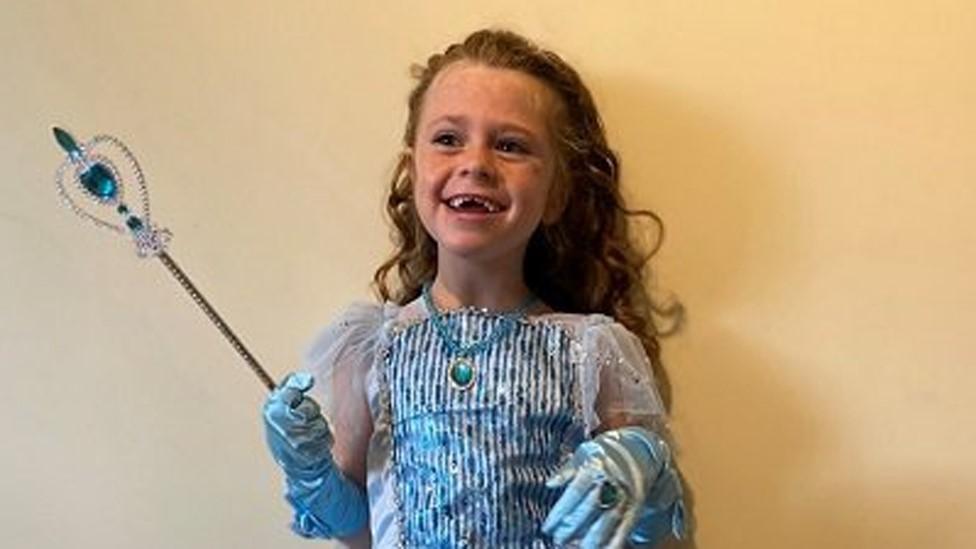'Our children could die if drug funding is cut'
- Published
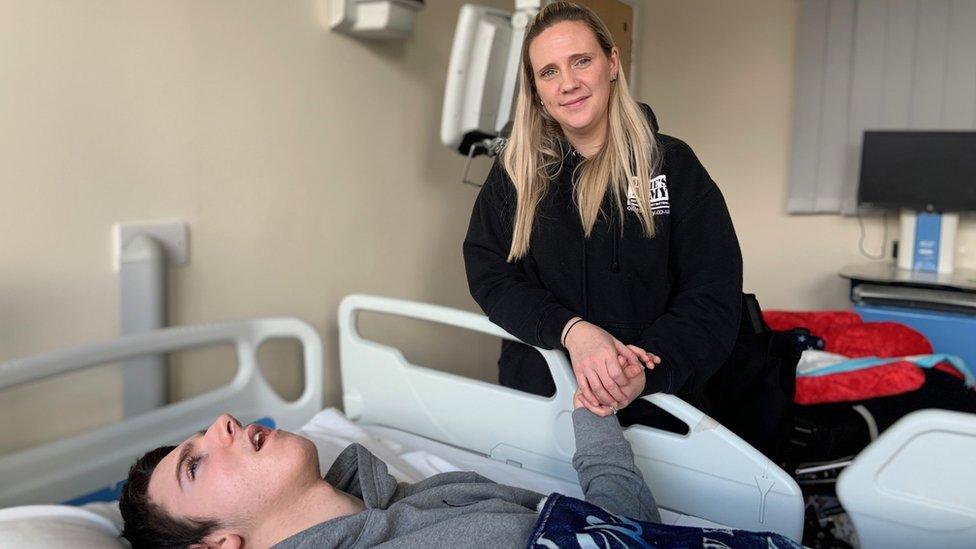
Lucy Carroll said Ollie's 13th birthday was a major milestone
The parents of siblings with a rare degenerative disease fear losing them if the NHS can't permanently fund treatment.
Ollie Carroll, 14, and sister Amelia, 11, from Cheshire, have late infantile Batten disease, which is incurable and ultimately fatal if not treated.
Funds for five years of treatment that has vastly slowed the illness end this year.
Mum Lucy Carroll said without it they will "deteriorate very quickly".
Mrs Carroll and her husband Mike, who live in Poynton, must now hope the NHS will be allowed to buy it permanently.
'Life and death'
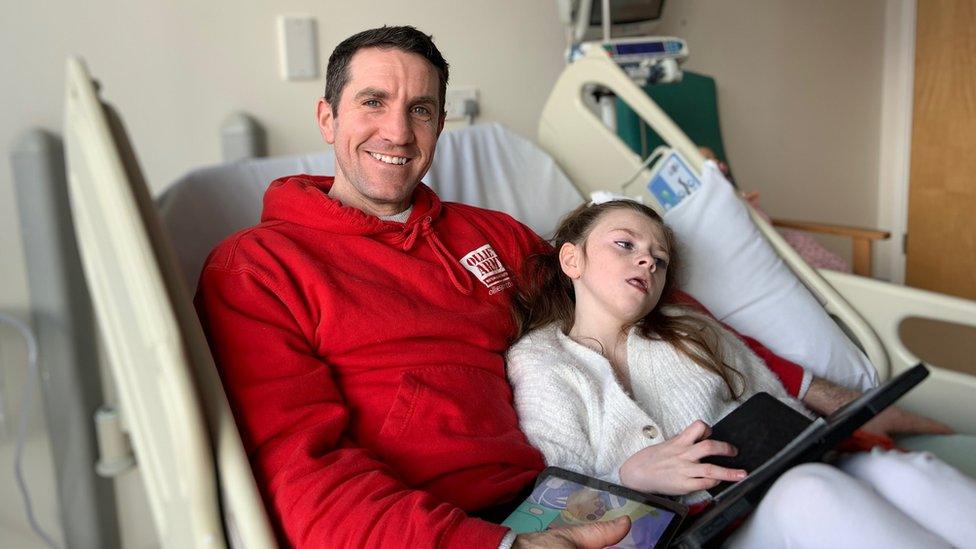
Mike Carroll with his daughter Amelia, who has Batten disease
The disease causes seizures, sight problems and loss of mobility, and when Ollie was seven in 2019, he was only expected to live for 12 years at most.
The BBC first followed the family in 2018 when Mike and Lucy were fighting to get the NHS to fund a drug called Brineura, which appeared to be virtually stopping the progress of the disease.
Ollie and Amelia were among the first children in the UK to access Brineura after their parents persuaded the drug company to give it to them for free.
Mrs Carroll had said then that it "was the difference between life and death".
The NHS spending watchdog National Institute for Health Care and Excellent (NICE) initially turned down a bid for permanent funding, but it agreed in 2019 that the drug could be bought at a vastly reduced price on a five-year managed access agreement with manufacturer BioMarin, while its effectiveness was monitored.
At full price, Brineura could cost up to £250,000 a year for each patient.
'Milestone'
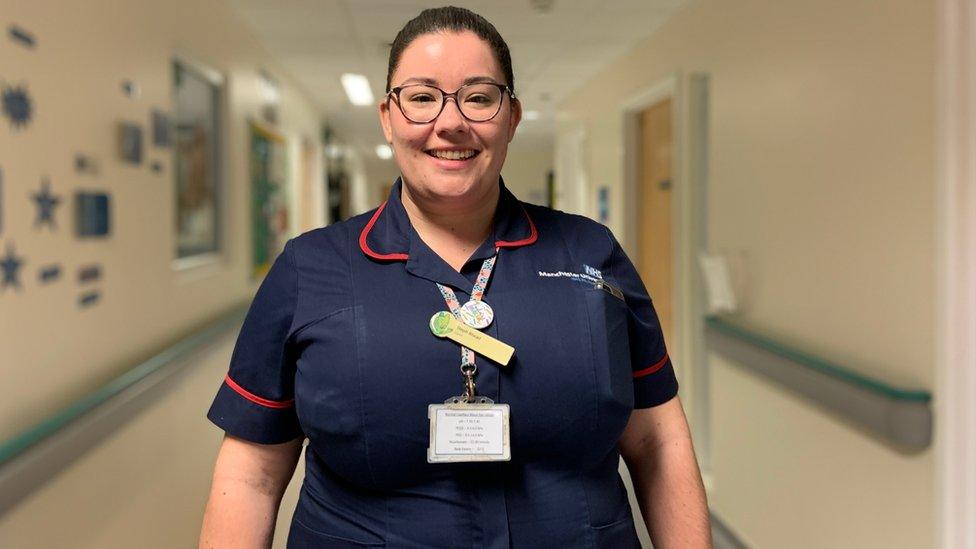
Steph Rhead said the service has taken the burden off parents
Mrs Carroll said: "Where do we go from here if they say no again?
"Last time they wanted the long-term data.
"That data's now being gathered, and it's being presented, and it's being looked over.
"If that's not good enough, I think that's our worry.
Mrs Carroll said Ollie's 13th birthday had been an important milestone.
"Every year we've thought, 'Can he get a little bit further?' and he did," she said.
"He's smashing it, he's doing so well, it's amazing."
At first, the family had had to make fortnightly trips to Great Ormond Street Hospital in London for treatment.
But two years ago, a new service opened at Manchester Children's hospital which treats children from all over the North.
Steph Rhead, Batten Service Matron at Manchester University Foundation Trust, said the service has taken the burden off parents who were struggling to make the trip to London.
"It was such a burden [on families] some of them were going to have to sell their houses because of travel costs," she said.
"As we know, it's very expensive to get down to London.
"It really has helped."
'Taken away'
The current agreement for using Brineura will end in November.
"If that treatment gets taken away, I don't think we'll even have another 12 months with Ollie," said Mrs Carroll.
"The same with Amelia, we know that she would deteriorate very, very quickly.
"It would be taken away from us very, very easily."
An initial decision on the funding is expected in the coming months.

Why not follow BBC Manchester on Facebook, external, X, external and Instagram, external? You can also send story ideas to northwest.newsonline@bbc.co.uk, external
- Published18 July 2022
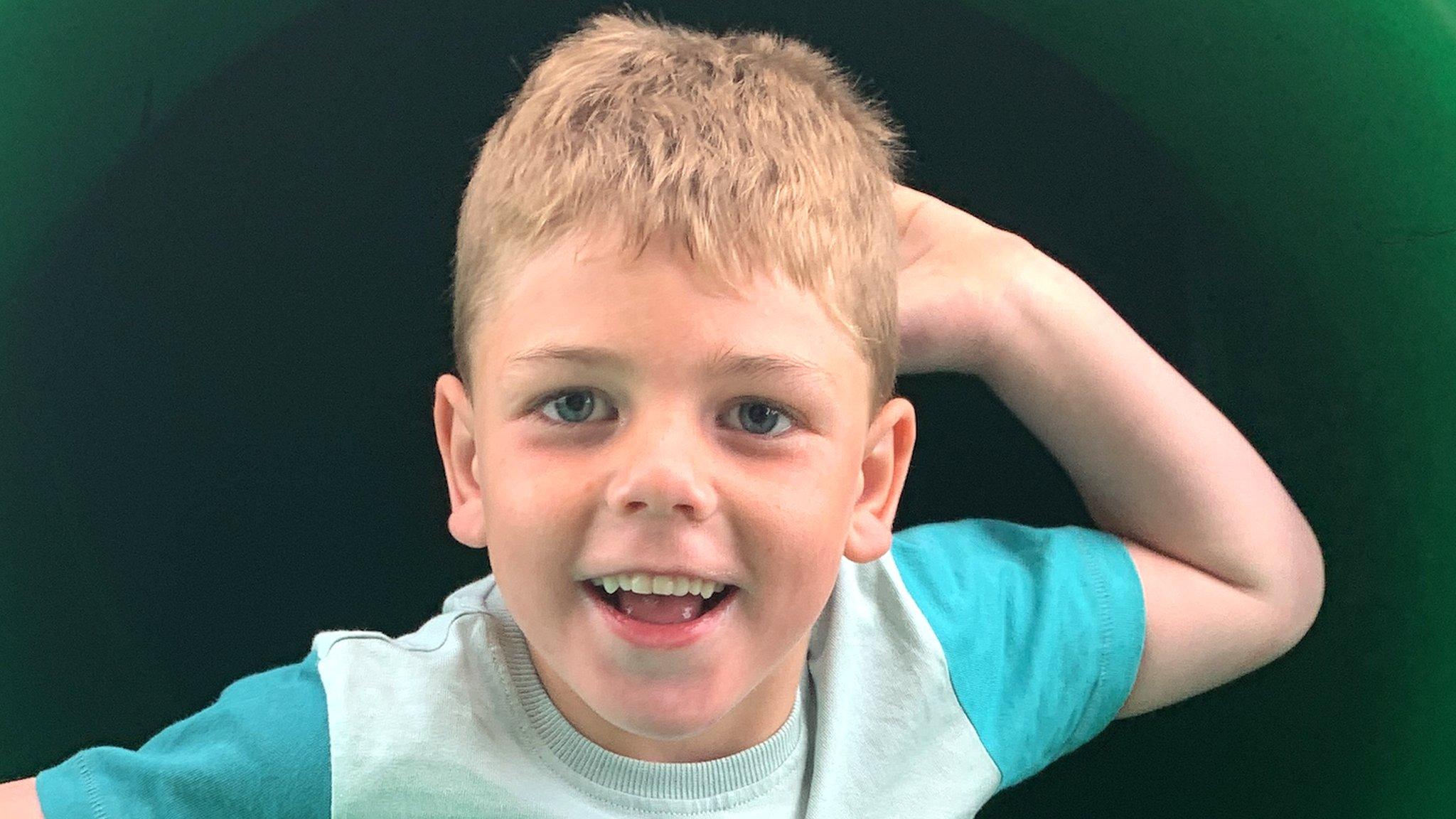
- Published22 February 2019
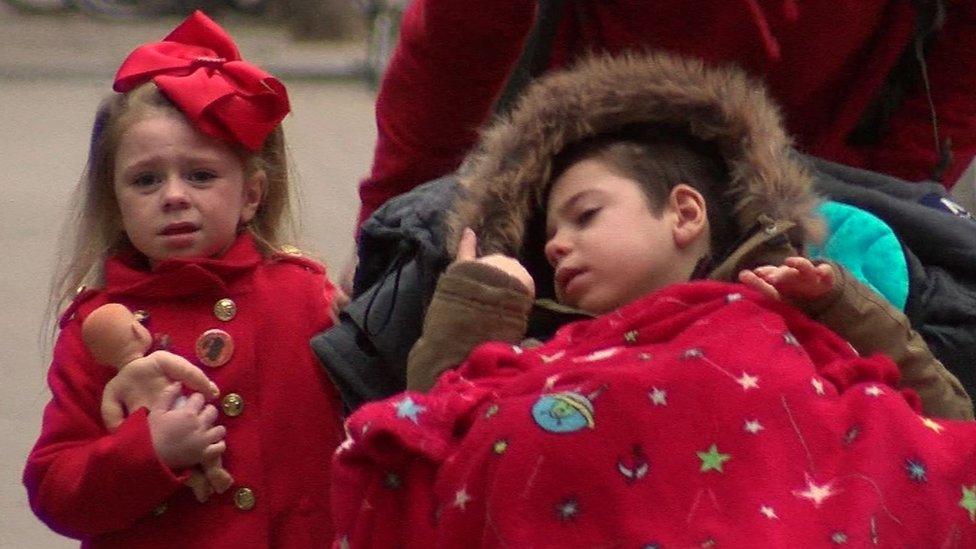
- Published13 January 2022
